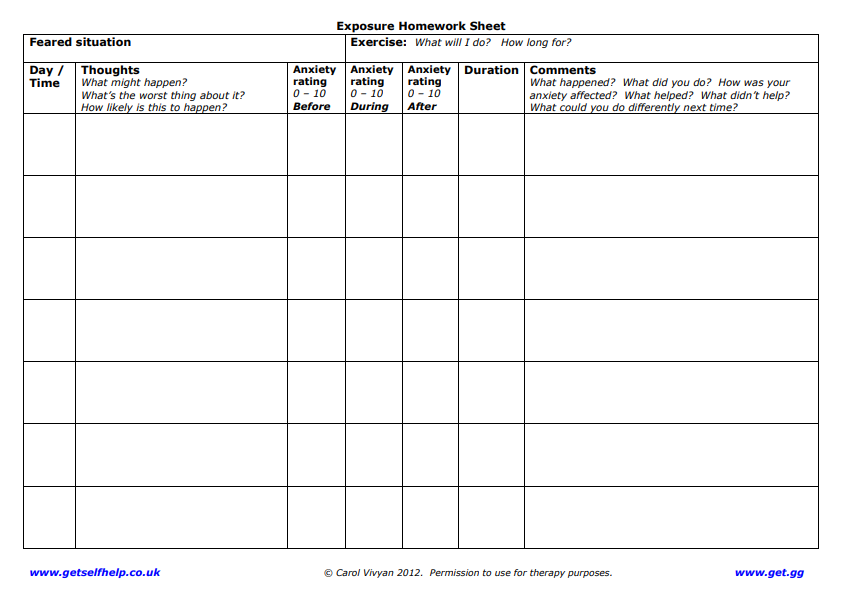This testimony and guide aim to address both people with mental health challenges and others living with them. Dealing with medical anxiety and Obsessive-Compulsive Disorder (OCD) for the past 8 years, I have embarked on a beautiful journey of self-realisation and of healing methods. Having said this, I wish to set a certain tone to this article: this is a great opportunity for those of us with mental health issues and you’ll see why.
Let’s start with the basics:
- People with mental health issues worry more than others because we can’t help it.
- Stressful situations heighten the normal symptoms we have.
To understand what happens to people with OCD let’s have a closer look at the problem itself:
A person has deep rooted beliefs that we call core beliefs. When those beliefs start to cause stress in life this person develops a behaviour to avoid the stress. The behaviour made to avoid stress, is called an avoidance mechanism.
Let’s give an example for that:
“Someone in a family died from a virus. Another person in order to cope with the grief started washing their hands to the point they can’t stop. They have to do it all the time even if it becomes a burden. Not performing the action will result to extreme stress and panic attacks.”.
This is a pretty straightforward example of an avoidance mechanism. What is easy to see here is that people with OCD are caught in a loop. We think of the same thing over and over and, in each loop, it worries us even more.
The main thing that worries us is a sense of responsibility. The sense of responsibility in this example would be: “If I don’t wash my hands me or someone, I care about will die”.
Now I have made a bold statement in the beginning that this is an opportunity and I will explain why. Cognitive Behavioural Therapy (CBT) proposes a method called exposition to relieve stress caused by the the mechanisms. Exposition is a simple method where you identify something that stresses you a lot and you expose yourself to it.. In the same way a boxer exposes to pain and then it doesn’t hurt so much, exposition helps manage the stress. In my case exposition has been extremely helpful Exposition works in a simple way; you make a worst case scenario for you and you fixate on it for a set period of time (let’s say 10 minutes). You try to think of the worst-case scenario that could happen, and you document on a chart your stress levels with 1-minute intervals. At the end of the session you document all your experience and check whether the worst has indeed happened. I have, therefore, developed a routine based on the guidelines against COVID-19.

My Survival Guide
- One hour of walking every day. Because we will for sure develop a self-isolation mechanism, walking outdoors and avoiding crowds will help us fight the fear of getting out without exposing ourselves to the virus.
- We wash our hands for 20 seconds with antibacterial soap when we enter the house and remove our clothes and wear something else. After we have done that, we wash our hands normally no more than once per hour.
- Panic buying. That’s a tricky one. We go to the grocery store every fourth day on a strict schedule. We buy things ONLY for one week worth of eating. We stock the 3 days surplus so that we feel safe in case of lockdown or illness.
- Going to the grocery store will definitely be a challenge. A person with OCD is always at a heightened level of alert. What we need to do is seek comfort in things we know, for example stick to stores that you know and visit often. Before you go, make a mental map of how you are going to move in the store. Make a list prior to your visit with alternative products. If at any moment you feel stressed in the verge of panic do the following: Take a deep breath for four seconds, hold it for seven and release for eight. DO THIS BEFORE MAKING ANY DECISION.
- Once you are out of the store use a hand sanitiser.
- Go home and treat yourself to whatever you want—you deserve it!
- Exercise at home. YouTube is full of video workouts you can follow to exercise anywhere.
- Solve puzzles or do a hobby that keeps you focused.
- Plan things for the future—you are going to be alive then as well.
- Don’t stop your work routines; simply work in the same way from home when possible, or if you need to, create new routines for home-working or studying.
- One shower per day.
This structure gives me a way to organise the chaos in my head and to continue one day at a time. Here lies the greatest chance of your life with a big exposition! One of my mechanisms is using technology as a distraction; nowadays I go out in the garden or read a book. I do not give in to the compulsion. Every day I write my worst fears down, the next day I check whether they became reality. By doing that I realise that my thoughts didn’t do anything bad. I talk with my fiancée all the time and talk with friends over the phone all the time. I express my feelings by using as precise words as possible. For example: “I am afraid I will lose someone I love”. I avoid avoiding things! I prefer to say to my loved ones that I love them instead of performing behaviours to keep them safe.
I share with all of you the things that help me and I feel better with that.
Keep your mental and physical health a priority!


